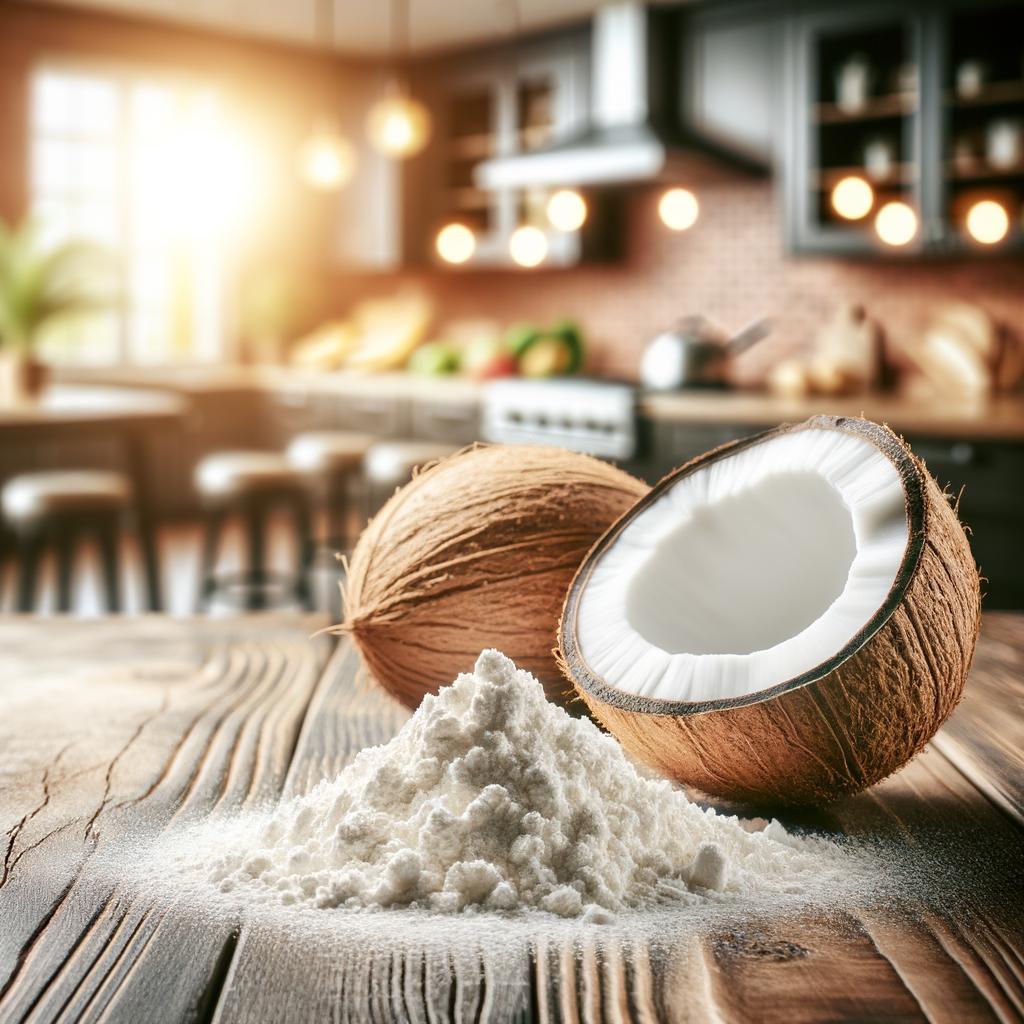Coconut Flour

Description
Coconut flour, a seemingly ordinary ingredient, carries a hint of the exotic within its fine, powdery texture. It is derived from the humble coconut, a fruit that grows in abundance on the swaying palms of tropical regions. The flour is a beautiful off-white color, reminiscent of sandy beaches and sun-kissed mornings. It has a soft, velvet-like texture that's deceivingly light, yet it holds a dense nutritional profile. The flavor profile is subtly sweet and nutty, a gentle reminder of its tropical origins. The unique characteristic of coconut flour that sets it apart from its counterparts is its gluten-free nature and high fiber content, making it a favorite among those following specific dietary needs.
Primary Uses
Coconut flour has a versatile role in the culinary world. It's commonly used as a gluten-free alternative to wheat flour in baking, lending a distinct flavor and texture to cakes, cookies, and bread. It's also a popular ingredient in a range of cuisines, from the tropical delicacies of the Caribbean to the rich, aromatic dishes of South East Asia. Beyond its culinary uses, coconut flour also has a role in traditional medicine, particularly in Ayurveda, where it's used as a digestive aid due to its high fiber content.
History
The history of coconut flour is as rich and intriguing as the ingredient itself. It dates back to ancient times when indigenous peoples of the tropics discovered the many uses of the coconut tree, aptly named the 'Tree of Life'. The creation of coconut flour, however, is a relatively recent innovation, born out of the desire to reduce waste from the coconut milk and oil industry. The use and popularity of coconut flour have surged over the past few decades, particularly with the rise of gluten-free and low-carb diets. There's a beautiful folklore from the Philippines that tells a tale of how the first coconut tree sprung from a fallen prince, further emphasizing the cultural significance of this ingredient.
Nutritional Information
Nutritionally, coconut flour is a powerhouse. It's packed with fiber, protein, and healthy fats, while being low in carbohydrates. It also contains a good dose of iron, potassium, and other essential minerals. The high fiber content promotes digestive health, while the medium-chain triglycerides present in it are known for their energy-boosting properties. When compared to traditional wheat flour, coconut flour has fewer calories and carbs, making it a healthier alternative. However, it's worth noting that due to its dense nature, it's best used in moderation and in combination with other flours to achieve the perfect balance in your culinary creations.

